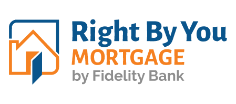If you’ve been thinking about buying a home, chances are you have a dream home pictured in your mind. Maybe it’s a beautiful home in the country with an acre or two of land. Or perhaps it’s a two-story craftsman in the suburbs close to the conveniences of downtown living.
Perhaps you’ve even begun touring homes to whet your appetite. But before you get too carried away, it’s a good idea to know how much you can practically afford to spend.
Your Mortgage Payment
For the most part, the key to how much house you can buy boils down to how much you can afford to spend on your mortgage payment.
When calculating the monthly payment you can afford, lenders use what is called a debt-to-income ratio, or DTI. Your DTI is your gross monthly income divided by your total monthly debts, including your anticipated mortgage payment and property taxes along with credit card payments, auto payments and other obligations. Most lenders like to see a DTI no higher than 43%.
Basically, the lower your DTI, the higher your payment can go. However, it’s one thing for your lender to determine what you can afford. It’s another thing for you to feel comfortable with that amount.
As a general rule, your housing expenses shouldn’t exceed 30% of your monthly income. To figure out what type of payment you can afford, just work the DTI calculation backwards and multiple your income by .30. You’ll also want to include taxes, insurance, and HOA dues, if applicable, in your estimate to get an idea of what payment you can comfortably afford.
Other Affordability Factors
Of course, where you buy your home is also a factor. For instance, a home in Asheboro, North Carolina is less expensive compared to a home in Raleigh, North Carolina. The cost of living is higher in Raleigh, too.
Assuming you don’t plan to move too far away, though, there are other factors that impact how much home you can buy. Your down payment is one of them. After all, the more money you can put toward the purchase of your new home, the less you have to borrow, and the lower your payments will be.
In most cases, you’ll have to come up with at least 3% of the home price as a down payment, which is the minimum requirement for conforming loans, or loans that are sold to Fannie Mae or Freddie Mac. FHA loans, which are loans guaranteed by the Federal Housing Administration, require a minimum down payment of 3.5%, but the credit requirements are less strict than conventional loans.
There are some zero down payment loans. Two government options are Veterans Affairs (VA) loans for veterans and active-duty military members, and U. S. Department of Agriculture (USDA) loans for those who live in rural areas. VA loans and USDA loans typically don’t require down payments. Right by You Mortgage also offers an adjustable rate 100% home loan which has no down payment for those who qualify.
Speaking of credit, your credit score is another factor that influences how much house you can afford. The higher your score, the lower your interest rate will be—and the lower your rate, the lower your monthly payments. Generally speaking, a credit score of 740 and higher will entitle you to the best interest rates.
Planning for the Unknown
There is no shortage of mortgage calculators on the Internet that can help you figure out how much house you can afford. Right by You Mortgage has one, too.
However, most mortgage calculators do not account for the type of expenses that you’ll encounter as a homeowner—expenses that you would never even consider as a renter. For example, if your home has a huge yard, you may need to hire someone to mow the lawn.
When you own a home, you’ll also have to pay for any damages or wear and tear that isn’t covered by insurance or a home warranty. This means it’s a good idea to save extra cash every month for basic maintenance and repairs.
Have more questions about how much house you can afford? Get in touch with a local Right By You Mortgage expert by calling 1-877-552-2242 or dropping a note to inquiries@rightbyyoumortgage.com.









